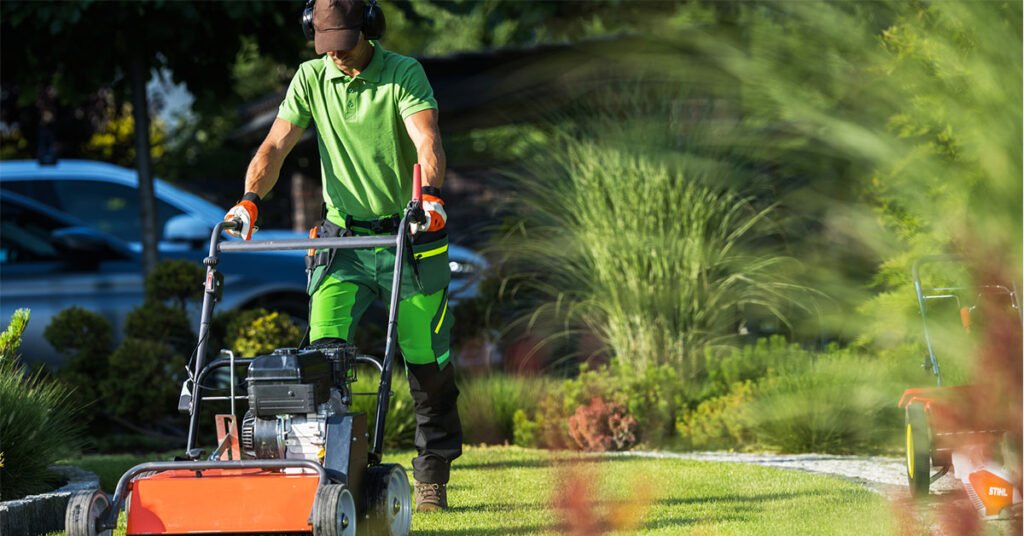Choosing a landscaping career can be an exciting journey filled with creativity, outdoor work, and the satisfaction of transforming outdoor spaces. However, before you dive into this field, it’s essential to understand the regulations, especially around licensing. In this blog post, we’ll explore the question: Do you need a license for landscaping?
We’ll discuss the importance of licenses, the types available, and how aspiring landscapers can get licensed. Let’s dive in.
Do You Need a License for Landscaping?
Whether you need a landscaping license depends on your location and the services you provide. In many areas, landscaping businesses need a contractor’s license to ensure they have safe, practical work skills. However, some regions might not require you to do basic stuff like lawn mowing.
Find out if you need a license for your specific services by researching your local regulations. Getting your license can boost your professional image, instill confidence in clients, and potentially open doors to more significant projects. While licensing requirements vary, exploring the licensure option can enhance your career prospects.
Why Licensing Matters
Licensing is a crucial aspect of professionalism and credibility within the landscaping industry. It demonstrates to clients and employers that you possess the necessary skills, knowledge, and expertise to perform landscaping tasks safely and effectively. Additionally, obtaining a license can help you stand out in a competitive market, instilling trust and confidence in potential clients.
Types of Licenses
The following are a few types of licenses that are necessary for landscaping professionals.
Contractor’s License
Individuals or businesses engaged in landscaping services are required to hold a contractor’s license in many regions. This license typically involves passing an examination and fulfilling specific criteria set by local or state licensing boards.
Pesticide Applicator License
Landscapers who apply pesticides as part of their services may need to obtain a separate pesticide applicator license. It ensures compliance with regulations related to the safe handling and application of chemical substances.
Business License
Beyond individual licenses, landscapers operating their businesses may need to acquire a business license or permit to legally conduct operations in their area. This process often involves registering the company with local authorities and fulfilling associated requirements.
How to Obtain Landscaping Licenses
You should follow the following steps to obtain a landscaping license.
Research Licensing Requirements
Begin by researching the specific licensing requirements in your state or locality. This information can typically be found on the website of your state’s licensing board or Department of Agriculture.
Complete Required Education or Training
Depending on your license type, you may need to complete specific education or training programs. It could include coursework in horticulture, landscape design, or pesticide application.
Prepare for Examinations
For contractor’s licenses and pesticide applicator licenses, you’ll likely need to pass one or more examinations. Licensing authorities often provide study materials and exam outlines to help candidates prepare.
Submit Application and Fees
Once you’ve met the prerequisites, submit your license application and any required fees. Be sure to double-check that all necessary documentation is included to avoid delays in processing.
Maintain Compliance
After obtaining your license, you must stay informed about any updates or changes to regulations that may affect your licensure. Fulfill any continuing education requirements and adhere to best practices in your landscaping work to maintain compliance.
Read More: How To Become A Landscape Architect?
Conclusion
Anyone seeking a career in landscaping should obtain a landscaping license. In addition to ensuring regulatory compliance, licensing shows professionalism and expertise to clients and employers. The steps to becoming a licensed landscaper will help a landscaper develop a reputation for quality work and reliability.



